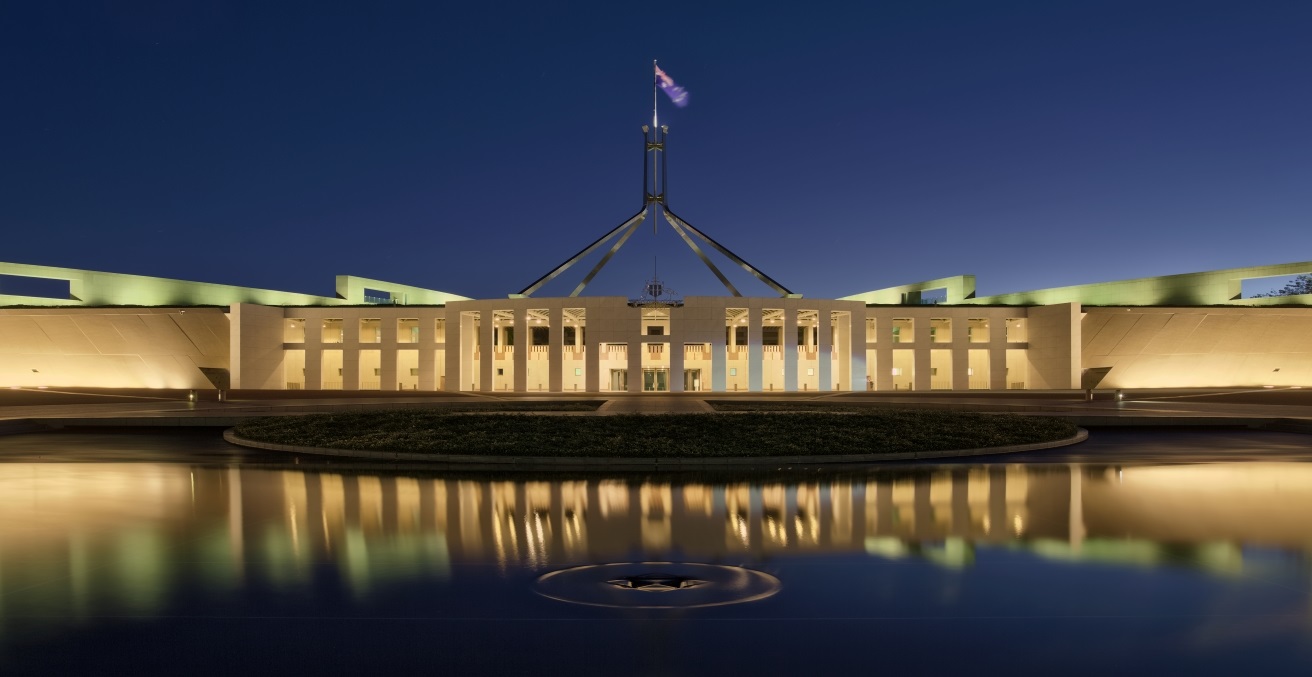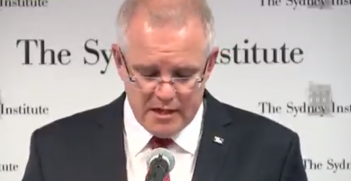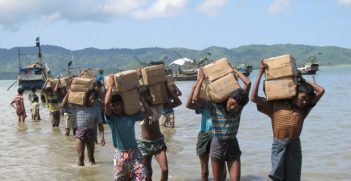7 May: The Week in Australian Foreign Affairs

This week in Australian foreign affairs: civil penalties for entering Australia from India, Payne’s trips to Europe and the United States, diplomatic appointments, and more.
On 30 April, Minister for Health Greg Hunt announced that under the Biosecurity Act 2015, anyone who enters Australia from India until at least 15 May “may incur a civil penalty of 300 penalty units, five years’ imprisonment, or both.” Hunt stated that “the Government does not make these decisions lightly” and that “it is critical [that] the integrity of the Australian public health and quarantine systems is protected and the number of COVID-19 cases in quarantine facilities is reduced to a manageable level.”
Payne and Hunt announced on 5 May that Australia delivered essential medical supplies to India on that day as part of the initial package of support to the Indian Government’s programme for combatting their current COVID-19 outbreak. The supplies were carried on a chartered Qantas flight and included 1056 ventilators and 43 oxygen concentrators, and will be distributed by the Indian Red Cross. Hunt stated that, “We are deeply passionate about supporting people in India, which is why we have reached out to support with medical supplies such as oxygen, ventilators and PPE. At the same time we are working on plans to resume travel from India to support Australians to get home.”
On 3 May, Minister for Foreign Affairs Marise Payne announced that she will visit London, Geneva and Washington over the next fortnight “to meet with a wide range of our close allies and partners to further Australia’s interests in the COVID-19 period and beyond.” This will include attending the G7 Foreign and Development Ministers’ Meeting in London, a major strategic discussion ahead of the G7 Leaders’ meeting in June. She will also travel to Washington for the Australian Government’s first ministerial, in-person consultations with the Biden Administration.
Payne, Hunt and Minister for International Development and the Pacific Zed Seselja noted on 5 May that Australia provided an initial delivery of 20,000 Australian-manufactured vaccines to Timor-Leste. The Ministers also mentioned that 10,000 COVID-19 vaccine doses will be delivered to Fiji over the course of the week.
On 4 May, Payne and Seselja issued a statement on the opening of two new diplomatic missions in the Republic of the Marshall Islands and French Polynesia. These openings bring Australia’s diplomatic network in the Pacific to nineteen missions, meaning that Australia now has official representation to every member of the Pacific Islands Forum. Claire Scott will be Australia’s first Consul-General in Papeete, and Brek Batley will be Australia’s first resident Ambassador to the Republic of the Marshall Islands.
Payne also announced two other diplomatic appointments on 4 May: Emily Luck as Australia’s next High Commissioner to Samoa, and Adelle Neary as Australia’s next Consul-General in Chengdu.
On 29 April, Prime Minister Scott Morrison delivered an address at the United Israel Appeal Dinner in Sydney. Morrison stated that “we stand by like-minded friends, such as the Jewish people and the State of Israel, who is a great friend to Australia and we are a true friend of Israel. A country that is sovereign, that is independent and free … Australia is a proud and faithful friend.”
Minister for Trade Dan Tehan discussed the global tourism recovery with other G20 tourism ministers at a virtual forum on 4 May. Tehan stated that, “Australia continues to be active in strengthening international cooperation on COVID-safe travel initiatives to promote recovery in this crucial sector.” He also noted that in 2020, international arrivals fell by nearly 75 percent globally, representing an estimated loss of A$1.7 trillion in global tourism export revenue.
On 30 April, Tehan announced that an expert panel will provide advice to government and the tourism industryto “help drive the economic recovery of the tourism industry and ensure its long-term success.” Tehan appointed former federal Tourism Minister, Martin Ferguson, to lead the Reimagining the Visitor Economy Expert Panel over the next six months. The remainder of the panel will consist of: Leanne Coddington, Chief Executive Officer of Tourism and Events Queensland; Karyn Kent, Chief Executive of StudyAdelaide; Kate Lamont, owner of Lamont’s Wine and Food; and Juan Walker, owner and operator of Walkabout Cultural Adventures. The Terms of Reference for the panel can be found here.
Minister for Immigration, Citizenship, Migrant Services and Multicultural Affairs, Alex Hawke, announced on 5 May that “owing to the ongoing unrest in Myanmar, Myanmar nationals currently in Australia on temporary visas may apply to extend their stay until it is safe to return home.” Hawke stated that, “Australia continues to strongly urge the Myanmar security forces to exercise restraint and refrain from violence against civilians, release those detained arbitrarily and engage in dialogue.”
On 29 April, Hawke, alongside Morrison and Assistant Minister for Customs, Community Safety and Multicultural Affairs Jason Wood, and more than 140 multicultural community leaders, discussed Australia’s travel pause with India and “the range of assistance that Australia is providing at this difficult time.” Hawke stated that, “the Government will now undertake a large scale program of engagements with Australia’s Indian community to hear their views and concerns regarding the evolving COVID-19 situation in India, provide updates, and convey the Australian Government support options that are available.”
Shadow Minister for Foreign Affairs Penny Wong stated on 30 April that “more action [is] required to assist India and the 10,000 Australians left stranded.” Wong called on the Government to “put in place a plan to get stranded Australians home as soon as possible by acting on safe, national quarantine” and to “work urgently to support Australians in India, including options to vaccinate Australians left behind in this high-risk situation, and provide extra financial support to those most vulnerable.”
On 30 April, Wong urged the Morrison Government to “stop its obstruction and instead work cooperatively to explore all options that ensure developing nations can access safe, effective and affordable COVID-19 vaccines in a timely way, ahead of a meeting of the World Trade Organization today.”
Isabella Keith is an undergraduate student at the Australian National University studying Law and Politics, Philosophy and Economics. She is currently an intern at the AIIA National Office.
This article is published under a Creative Commons License and may be republished with attribution.




